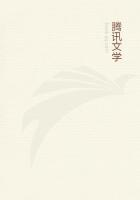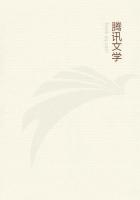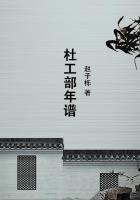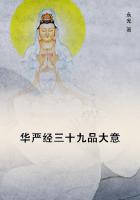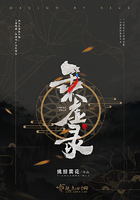Lamar told the story in the spirit of a joke against himself rather than against Roebuck; but such jokes must have been unpleasantly common in the experience of the rebel agents. They were surrounded by cranks of the worst English species, who distorted their natural eccentricities and perverted their judgment. Roebuck may have been an extreme case, since he was actually in his dotage, yet this did not prevent the Lairds from accepting his lead, or the House from taking him seriously. Extreme eccentricity was no bar, in England, to extreme confidence; sometimes it seemed a recommendation; and unless it caused financial loss, it rather helped popularity.
The question whether British eccentricity was ever strength weighed heavily in the balance of education. That Roebuck should mislead the rebel agents on so strange a point as that of Bright's courage was doubly characteristic because the Southern people themselves had this same barbaric weakness of attributing want of courage to opponents, and owed their ruin chiefly to such ignorance of the world. Bright's courage was almost as irrational as that of the rebels themselves. Every one knew that he had the courage of a prize-fighter. He struck, in succession, pretty nearly every man in England that could be reached by a blow, and when he could not reach the individual he struck the class, or when the class was too small for him, the whole people of England. At times he had the whole country on his back.
He could not act on the defensive; his mind required attack. Even among friends at the dinner-table he talked as though he were denouncing them, or someone else, on a platform; he measured his phrases, built his sentences, cumulated his effects, and pounded his opponents, real or imagined. His humor was glow, like iron at dull heat; his blow was elementary, like the thrash of a whale.
One day in early spring, March 26, 1863, the Minister requested his private secretary to attend a Trades-Union Meeting at St. James's Hall, which was the result of Professor Beesly's patient efforts to unite Bright and the Trades-Unions on an American platform. The secretary went to the meeting and made a report which reposes somewhere on file in the State Department to this day, as harmless as such reports should be; but it contained no mention of what interested young Adams most -- Bright's psychology.
With singular skill and oratorical power, Bright managed at the outset, in his opening paragraph, to insult or outrage every class of Englishman commonly considered respectable, and, for fear of any escaping, he insulted them repeatedly under consecutive heads. The rhetorical effect was tremendous:--
"Privilege thinks it has a great interest in the American contest," he began in his massive, deliberate tones; "and every morning with blatant voice, it comes into our streets and curses the American Republic. Privilege has beheld an afflicting spectacle for many years past. It has beheld thirty million of men happy and prosperous, without emperors -- without king ( cheers )
-- without the surroundings of a court ( renewed cheers )--without nobles, except such as are made by eminence in intellect and virtue -- without State bishops and State priests, those vendors of the love that works salvation ( cheers ) -- without great armies and great navies -- without a great debt and great taxes -- and Privilege has shuddered at what might happen to old Europe if this great experiment should succeed."
An ingenious man, with an inventive mind, might have managed, in the same number of lines, to offend more Englishmen than Bright struck in this sentence; but he must have betrayed artifice and hurt his oratory. The audience cheered furiously, and the private secretary felt peace in his much troubled mind, for he knew how careful the Ministry would be, once they saw Bright talk republican principles before Trades-Unions; but, while he did not, like Roebuck, see reason to doubt the courage of a man who, after quarrelling with the Trades-Unions, quarreled with all the world outside the Trades-Unions, he did feel a doubt whether to class Bright as eccentric or conventional. Every one called Bright "un-English," from Lord Palmerston to William E. Forster; but to an American he seemed more English than any of his critics. He was a liberal hater, and what he hated he reviled after the manner of Milton, but he was afraid of no one. He was almost the only man in England, or, for that matter, in Europe, who hated Palmerston and was not afraid of him, or of the press or the pulpit, the clubs or the bench, that stood behind him. He loathed the whole fabric of sham religion, sham loyalty, sham aristocracy, and sham socialism. He had the British weakness of believing only in himself and his own conventions.
In all this, an American saw, if one may make the distinction, much racial eccentricity, but little that was personal. Bright was singularly well poised; but he used singularly strong language.
Long afterwards, in 1880, Adams happened to be living again in London for a season, when James Russell Lowell was transferred there as Minister; and as Adams's relations with Lowell had become closer and more intimate with years, he wanted the new Minister to know some of his old friends.
Bright was then in the Cabinet, and no longer the most radical member even there, but he was still a rare figure in society. He came to dinner, along with Sir Francis Doyle and Sir Robert Cunliffe, and as usual did most of the talking. As usual also, he talked of the things most on his mind. Apparently it must have been some reform of the criminal law which the Judges opposed, that excited him, for at the end of dinner, over the wine, he took possession of the table in his old way, and ended with a superb denunciation of the Bench, spoken in his massive manner, as though every word were a hammer, smashing what it struck:--


